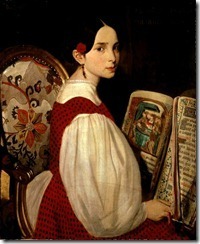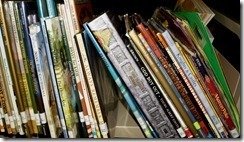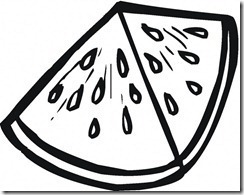Elizabeth Spann Craig's Blog, page 221
November 30, 2010
How Our Favorite Writers Inspire Us
 Hi y'all. Today is my day on the Southern writers blog, A Good Blog is Hard to Find. Hope you'll pop over for my post on all the ways that reading our favorite authors can inspire us. Thanks! :)
Hi y'all. Today is my day on the Southern writers blog, A Good Blog is Hard to Find. Hope you'll pop over for my post on all the ways that reading our favorite authors can inspire us. Thanks! :)
November 29, 2010
Plan B
 While I was looking for blog posts to tweet, I came across a site where a blogger was particularly dejected over a rejection.
While I was looking for blog posts to tweet, I came across a site where a blogger was particularly dejected over a rejection.
The blogger had met an agent at a conference, established a solid connection, and sent a manuscript to the agent, as invited to do.
The blogger is active in the online writing community, writes well, and follows industry news.
He'd been doing everything right, and he was getting frustrated. He mentioned throwing in the towel.
That's a very natural response. I sent off each of my carefully-written, carefully-targeted queries with a good deal of hope and optimism.
When I'd see my SASE back in my mailbox, I can remember the sinking feeling I'd get. Some days I'd rip the envelope open quickly to get the pain over with—sort of like tearing off a Band-aid. Some days I'd open everything else in my mailbox first…even the bills.
Either way, it felt like a punch in the gut. Particularly when I felt like the agent and I were a good match for each other.
So I wasn't having any luck. My agent search was now stretching over the space of years.
Finally, I decided to go to Plan B. I'd keep the agent queries in circulation, but I decided to go ahead and submit directly to some carefully-targeted publishers, too.
I approached this a couple of different ways. I did submit directly to editors at smaller and independent publishing houses that accepted queries from the unagented (I usually got the editors' names from the thank yous in authors' acknowledgment pages.)
I also, I'll admit, submitted to larger publishers who were closed to queries from the unagented…and a couple that were closed to queries altogether.
Sometimes, I think a different approach is really the only way to keep moving ahead. Obviously, you've still got to really make sure that the publisher is the one that fits your manuscript. You need to have a great query. You need to address it to the right editor.
But you don't have to have an agent first. I'd rather have done it that way…but at the time, it wasn't going to happen. And it ended up working out well for me—I ended up with a book at mid-sized mystery publisher Midnight Ink and interest from Penguin books. And, soon after that, an agent.
Change it up, go to Plan B. But please, don't throw in the towel.
November 28, 2010
Keeping it Interesting
 I don't know what it is about me lately, but I've been a difficult reader to please.
I don't know what it is about me lately, but I've been a difficult reader to please.
I think it's the fact that I've been unusually busy since late-July. But it seems to me that I've been a more impatient reader than ever before—that when I reach a boring patch, it shouldn't last very long or else I'm going to find something else to read.
This worries me—as a reader and a writer.
I was an English major and classical literature is known for its boring spots. :) I was always able to wade through it before…but I had a whole lot more time on my hands and was definitely a more patient reader.
As a writer, I'm working harder to make sure my story doesn't drag. I'm reading my manuscripts as an impatient reader and looking for places where my book needs a little shaking up.
Here's a list I've come up with on little ways (well, some of them are bigger ways) to keep things interesting for readers:
Change the setting (are the characters spending too much time sitting and eating?)
Add more dialogue.
Introduce a new character. Or, if you're me, kill off an old one. :)
Shake up the sentence structure. Are all your sentences starting with the subject, followed by a verb (should you start some with participles or subordinate clauses)? Are there too many nouns preceded by adjectives (should you be choosing stronger verbs)?
Introduce a plot twist.
Add to the conflict.
I also get worn out with too much conflict (I warned you I'm becoming the impossible reader!) So maybe infuse some humor to break up the tension.
Move the characters around. Have them engage in an activity if they're sitting a lot.
Use both long and short sentences.
Show more than tell.
Cut out the dead wood in the book. Do I have any scenes that seem dead? Do these scenes serve a purpose, or can they be cut out…or could the information in the scene be conveyed in a different way (through dialogue, etc.)?
How do you keep your readers interested?
November 27, 2010
Twitterific
![Terry3_thumb[1]](https://i.gr-assets.com/images/S/compressed.photo.goodreads.com/hostedimages/1380444857i/1479270.png)
Here are writing links that I've posted to Twitter for the past week.
There are fewer this week because I went on tweetcation for the Thanksgiving holiday. :)
How to Build a Real Network (Not a List of Strangers): http://dld.bz/7R6J
Finding the theme of your book: http://dld.bz/7HVq
How to Get Unstuck: Mind Shifts for the Freelance Writer: http://dld.bz/7HUV
Formatting for E-Readers: http://dld.bz/7HUN
A crime writer's top 10 crime locations (Guardian): http://dld.bz/7HTS
Agent pitching technique: http://dld.bz/7HTu
Subtexting in Dialogue: http://dld.bz/7HTj
Why so many people want a Kindle for Christmas (Telegraph): http://dld.bz/7HST
Myst. Lov. Kitchen: Some Cranberries—for Drinking! http://bit.ly/eelF3U
How to Nurture Your Creativity as a blogger: http://dld.bz/7HS5
The Most Dangerous Moment for an Author: http://dld.bz/7HSe
Christian Fiction and the Awkward Bookstore Dance: http://dld.bz/7HRN
Motivation to Write – How Writers Get and Stay Motivated: http://dld.bz/7FQe
Tips for writers to stay focused on writing while not abandoning other responsibilities: http://dld.bz/7FPn @swkehoe
NaNoWriMo Week 4 – Beginning of the End: http://dld.bz/7FNF
What Can Trade Book Publishers Learn from Comic Books about Branding? http://dld.bz/7FN5
The Knotty Problem of Quantum Gravity: http://dld.bz/7FMZ
7 Common Causes and Proven Cures for Procrastination: http://dld.bz/7FMJ
Letting Action Define Your Characters: http://dld.bz/7FMv
4 Types of Tweets: Don't Yell Into the Wind-- http://dld.bz/7FMs
Becoming An Indie Author: Is Success Based On Luck? http://dld.bz/7F62
Practical Tips For The Nighttime Novelist: http://dld.bz/7CNx
List of dialogue tags: http://dld.bz/7CNu
7 Tips for Editing Your Way to the Best Story on the Planet: http://dld.bz/7CNs
Call me Ishmael… When to reveal your MC's name if writing in first person: http://dld.bz/7CNc
10 Tips for Attending Writers Conferences: http://dld.bz/7CMW
Myst. Lov. Kitchen: Sweet Potato Casserole with Brown Sugar and Pecans from Cleo Coyle http://bit.ly/fVSllG @CleoCoyle
The Making of a Novel: What Support Means to a Writer (Huff Post) : http://dld.bz/7BCu
A Behind-the-Scenes Look at Published-Author Life: http://dld.bz/7BAF
How to write when you've got nothing to say: http://dld.bz/7BA5
Use Facebook and Twitter to Drive Crowds to Your Blog: http://dld.bz/7BA3
4 Reasons Why Best Sellers Get to Suck & You Don't: http://dld.bz/7BAx
Writers--do you have impostor syndrome? http://dld.bz/7BDP @rebeccabehrens
How to build a character: http://dld.bz/7BAe
An agent on what *not* to do during the query process: http://dld.bz/7xUm @RedSofaLiterary
6 Ways to Cope With Writing Fears: http://dld.bz/7xVS
Acceptance and rejection--balance in the creative life: http://dld.bz/7xVJ
Author Intrusion: How To Stay Invisible: http://dld.bz/7xV6
Your Query Submission Checklist: http://dld.bz/7xTU @RedSofaLiterary
3 ways to get the distance you need for rewriting: http://dld.bz/7xTC
Revising A Manuscript That's Already Making the Rounds: http://dld.bz/7xTv
At the Core: The Premise and How it Ties it all Together: http://dld.bz/7xTa
Writing 'high concept': http://dld.bz/7xST
23 Websites that Make Your Writing Stronger: http://dld.bz/7xSy
Six Tips for Getting the Most Out of Conferences: http://dld.bz/7xSt
Myst. Lov. Kitchen: RAGGEDY ANNE COOKIES http://bit.ly/cTTzjA @CleoCoyle
Authors, Social Media and the Allure of Magical Thinking: http://dld.bz/7xSd
Reference help--the reverse dictionary: http://dld.bz/7xRS
When Errors Are Found In Royalty Statements: http://dld.bz/7xPT
How high are the stakes? Building better conflict and dilemma into your book: http://dld.bz/7xRs
10 Ways to Find Inspiration for Your Next Post: http://dld.bz/7xPJ
Inspiration: Even When You Don't Want to Write: http://dld.bz/7umP
Top Five Mistakes Authors Make in Proposals: http://dld.bz/7umA
Preparing for hibernation--building a winter writing rhythm: http://dld.bz/7xQt
Handgun Tips for Writers: http://dld.bz/7um5
Tips for introverts at writing conferences: http://dld.bz/7umx
6 Ways to Shoot Yourself in the Foot: http://dld.bz/7umk @victoriamixon
Why Creative Writers Need To Reveal Themselves In Their Work: http://dld.bz/7umf
A plot twist too far – was Rick Deckard a replicant? http://dld.bz/7ukW
When Spell-check Fails: Proofreading and Your Manuscript: http://dld.bz/7ukT
Voice: Authenticity and Heart: http://dld.bz/7ukE
If you're serious about becoming a better writer--just sit down and write: http://dld.bz/7ujU
Facebook Messaging: Why Text and Email Aren't Equal (Wall St. Journal) : http://dld.bz/7uj7
How to write 'hot': http://dld.bz/7rp2
Best Articles This Week for Writers 11/19/2010: http://dld.bz/7u9t @4kidlit
Supporting characters--recipes for conflict: http://dld.bz/7rm6
For crime writers--handling lengthy investigations in our fiction: http://dld.bz/7usF @mkinberg
Support—It Comes in Different Forms
 The writing life is a tough one for many reasons…and it doesn't help that friends and family don't completely get what we're doing.
The writing life is a tough one for many reasons…and it doesn't help that friends and family don't completely get what we're doing.
But still, most of us get some support from the people around us. We might have a first reader among our friends and family.
We might have a spouse who gives us the time and space to stare out the window and write for a while.
And then, when our books come out, we have friends who are excited for us and rush out to buy our books.
Right?
Last week, I tweeted a post by mystery publisher Agatho (he's anonymous) entitled For God's Sake, Buy Your Friends' Books. It was one of the most retweeted tweets that I made.
I got many direct messages from writers on Twitter saying that all of their family and friends expected them to provide them with a free copy.
This is, actually, pretty shocking to me. I usually have one person who might angle for a free copy, but everyone else I know is at the bookstore soon after release day—supporting me. My latest release was $6.99 at full retail…but even if it had been a lot more, they'd be trying to help me out.
Because we wrote a book. It took us many hours of relative isolation, writing and rewriting, and work to get that book in a bookstore.
As Agatho put it:
Please tell me why you choose to ignore this remarkable accomplishment by a family member or someone you call a "friend." This person has labored, most likely for years, not only in writing a manuscript, but also in jumping through an endless series of hoops to get an agent and/or publisher. S/he has then had to exercise the utmost patience in rewriting several times to please an editor. Then, of course, comes the proofreading, which is even more work. At the end of the process, s/he holds an extremely affordable, compact, 300-page book that is the culmination of years of hard work and determination. And you - who will spend $4 for a cup of coffee at Starbucks, drop $100 for dinner for two at a trendy restaurant, or waste your money on cheap plastic crap at Walmart - cannot find it in your heart to buy a copy of this book?
Truthfully, though, some of the responsibility for this problem goes to the writer—who is giving these friends or family members free copies of the book.
I know it's tough because writers can be reticent and don't want to address the problem—it's easier to just hand out the freebies.
But honestly, this is the best response (and it's true…this is what we're supposed to be doing with our author copies): "I'm sorry, but all of my author copies are spoken for. My publisher specifically requested that I send them to book bloggers and other reviewers to drive up sales. But I see that my book is available at ____________ for just $_____. I hope you'll pick up a copy because I really think you'll enjoy it."
We can't force them to buy our book…but we can educate them about the purpose of author copies.
Have you got good support on your book launch days?
November 26, 2010
Giving Thanks—for Writing
 On this day after Thanksgiving, I thought I'd take a minute to celebrate some of the facets of writing that I'm really thankful for. Lots of times my writing challenges get center stage as I wrangle with the craft side of writing…or I work through the promotional side of it all.
On this day after Thanksgiving, I thought I'd take a minute to celebrate some of the facets of writing that I'm really thankful for. Lots of times my writing challenges get center stage as I wrangle with the craft side of writing…or I work through the promotional side of it all.
So here, in now particular order are some of the things I love about writing:
The moment a character comes to life
When the beginning or end of the book falls into place
Feeling completely comfortable with the protagonist and knowing what she'd do in any situation
When the perfect chapter break happens
Writing on a rainy day
Writing outside on a pretty day
Seeing the book's cover for the first time
Author copies
Getting good feedback
Getting struck by a great idea and scrambling for paper
The support of the writing community
What are some of the things you love about writing? What keeps you going through writing frustrations and challenges?
November 24, 2010
Happy Thanksgiving!
 Best wishes for a Happy Thanksgiving to my American friends. I'm going to be celebrating the day here at home with my family and parents.
Best wishes for a Happy Thanksgiving to my American friends. I'm going to be celebrating the day here at home with my family and parents.
I've lots to be thankful for today—and I'm adding my writing friends and the online writing community to my long list today. Thanks so much to all of you for your support and encouragement. :)
Getting Some Distance from Our Words
 We're having some painting done inside our house. Years of children with sticky hands have taken their toll on our walls. :)
We're having some painting done inside our house. Years of children with sticky hands have taken their toll on our walls. :)
While the painters were here, the owner said to me, "Would you like us to do your front door and shutters, too?"
I frowned. "Why? Do you think they should be painted?"
He hesitated. "Well, what color do you think they are?"
"I think the shutters and door are black."
"Could you step outside with me for a minute?" he asked.
As he pointed out, and as I was surprised to see, the shutters and door had faded quite a bit in the sun. They used to be black—but now were varying shades of grayish-black.
He painted them yesterday and the house looks brand-new. But I never would have noticed that they needed to be done because I drive up to my house every single day. I don't even see it anymore.
You see this analogy coming. :) It's true, though—we get just as close to our manuscript. It can be really tough to see its problems when we've been reading the book every day.
First readers or an independent editor are obvious solutions to this problem. They will read our work with fresh eyes and the problems will pop out at them easier.
Unfortunately, some of us may not have first readers to help us out. I've had a couple of writers volunteer to read for me, but because I have more than one project going on at once, I tend to get right up on top of my deadline. I just don't feel comfortable asking anyone to drop everything in their life to read 280 pages in a few days' time. Oh—except I do ask it of my mother. :)
So what's the solution if we need to get some distance from our work to thoroughly edit it?
Time: You can put your manuscript down for as much time as possible, then return to it. This method does work, although I don't have the time to do it anymore. When you pick up your manuscript again, it's almost as if someone else wrote it.
Reading aloud: This is a method that I use and it does help. There are only so many pages I can read without going hoarse, but the reading does put a bit of distance between us and the work.
Change of scenery: I really don't know why this works, but it does. If I've written the majority of the book at home, then I'll go to the coffeehouse to edit it. Different setting, different task at hand? Whatever it is, it seems to work for me…I think my brain is easily tricked. :)
Different font: I've heard this trick before, but haven't used it. Some swear by putting your manuscript in a completely different font for editing.
How do you get distance from your words?
November 23, 2010
Watermelon and Seed
 I was volunteering in my daughter's classroom on Friday for a Thanksgiving party for 4th grade.
I was volunteering in my daughter's classroom on Friday for a Thanksgiving party for 4th grade.
While I was in there (supposedly setting out snack supplies so the kids could make their own teepees out of ice cream cones, chocolate, and hard candy), I couldn't help but look at all the writing-related posters on the wall.
Fourth grade is a big writing year in elementary school. There were posters covering punctuation mechanics, grammar rules, commonly misspelled words, etc.
There was one poster though, that was a little more interesting to me. "Is your story idea a watermelon or a seed?"
Kids, naturally, sometimes come up with big ideas for stories—that don't really work for a short writing assignment. "My Summer Vacation" instead of "The Worst Amusement Park Visit Ever!" The teacher's point was that they needed to narrow their focus to get a better story.
But novelists are working with more pages to fill. We can afford a bigger picture.
Sometimes, though, that big picture doesn't always work. I've definitely read books where I felt lost in the imaginary world the author had created. What was the primary plot? What character am I supposed to care about…and who is the protagonist? These books felt unfocused and rambling. What was the point? Was it a murder mystery or a family saga or lit fic with an agenda? What was the seed?
With genre fiction, the seed is pretty easy to find. The underlying thread of my books is a murder. And I don't need to get too far away from it or else I'm off-target.
I've definitely edited down books before to get to the seed. Maybe there's a subplot that's fun, but doesn't really tie in enough with the main story—maybe it's an idea that needs its own book instead of being squeezed into a subplot. Or maybe there's a secondary character that's stealing the show and needs his own book.
Have you read books that don't have a sharp enough focus? How do you winnow your plot down to the seed when you write?
November 21, 2010
Why We Write
 My 8th grade son has really enjoyed his Language Arts class (what the schools are calling English these days) the last couple of years. His teacher actually moved up from 7th grade to 8th grade and he's having her for a second year.
My 8th grade son has really enjoyed his Language Arts class (what the schools are calling English these days) the last couple of years. His teacher actually moved up from 7th grade to 8th grade and he's having her for a second year.
I've been impressed with the way the teacher has taught topics like mood and tone and the quality of the assignments she sends home for projects. I feel like he's getting a really solid background in a subject that's important to me.
He does have a new assignment, though, that's got me puzzled. To be fair, it hasn't actually come from the Language Arts teacher that he and I like so much—it's a school-wide, quarterly book project and is supposed to supplement his other curriculum.
For the assignment, he's to take the books he's reading for pleasure and do a comprehensive project on them. So, not the books that he's reading for class---books he's reading for fun.
Commercial fiction. Genre fiction. For him, this is Sci-fi, fantasy, dystopian literature, etc…and do a project.
Fine. But one of the questions on the assignment is "what was the author's purpose in writing this book?"
My immediate reaction was to snort. For commercial fiction? That purpose is personal to the author. It could be because they can't NOT write. It could be that they've studied the market and studied the craft and written a book that they thought could sell…to break into a difficult and crowded market. It could be for money. It could be that they dreamed up a character that demanded to have a story written around them.
But almost always? It's to entertain. It's probably not to inform or educate. It's to provide a reader a few hours of escape. It's been carefully thought-out and designed and revised and sweated over to seem seamless and to be riveting.
Why do you write?



